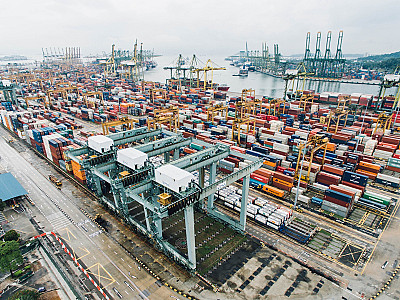Logistics Industry: A New Way of Delivery
Find out to which extent has the logistics industry in Indonesia developed.



As of September 3rd, there have been significant changes in the oil and gas sector in Indonesia. Rising prices of both local and international oil companies, such as Pertamina, Shell, and BP, have caused outrage among Indonesian citizens. This all started due to the Russian-Ukrainian War, and despite the government’s efforts to maintain and keep gas prices, the fee at which they acquire gas has increased too much to not adapt. This has impacted numerous industries in the country. One of the industries that experience significant impact is the logistics industry.
Due to the nature of logistics companies’ business model, transportation and fuel are two crucial factors that keep them circulating in the business. Let’s take a look at how JNE, one of the most established logistics companies in Indonesia, and its strategy in coping with this crisis.
With the sudden change in price, JNE has been forced to adapt and adjust its business strategy. One of them was to modify their cost structure. Although they still experience losses, they're able to somewhat mitigate this by reshaping how they allocate their costs. Eri Palgunadi, VP of Marketing for JNE, stated that transportation and fuel will not be a determinant factor in adjusting their base price, thus reducing the impact of the increased price of oil on their profit margins.
Mr. Palgunadi also stated that JNE has been able to fight this price war through its partnership and collaboration strategy. Their collaboration with WMS (Web Messenger Services) in utilizing hubs or any other distribution points that can help them to maintain their costs. They are also able to maintain their collaboration and synergize with parties that are providers of transportation modes in order to supply excellent, competitive services to their customers.
Finally, JNE’s strategy and competitive advantage in their distribution methods are what separate them from the rest. JNE possesses over 10,000 units of transportation, ranging from bikes all the way to trucks. This is made possible by their IT facilities, which enable customers to trace and track the items that they bought at an insanely accurate level. This, alongside their strategy and emphasis on collaboration with various stakeholders, help them to maintain their original base price level and maximize profits despite the difficult circumstances.
The new crisis in the form of a sharp increase in the price of oil has created various protests and chaos among many entrepreneurs and businesses. But, as the saying goes, “there is an opportunity in a crisis”, which shows JNE’s strategy to be able to adapt to its environment, to further strive and improve despite the high uncertainty many companies are facing.
We will give you updates of our latest news
Find out to which extent has the logistics industry in Indonesia developed.

There are many assumptions and misconceptions about the roles women can take in the logistics sector. However, many female logistics leaders have put in effort to change this status quo.
